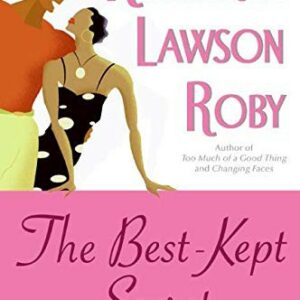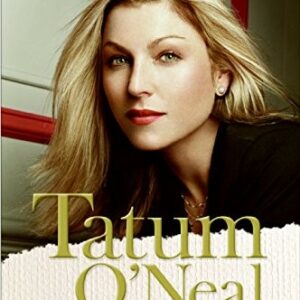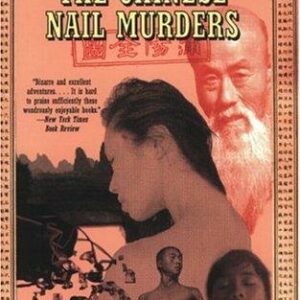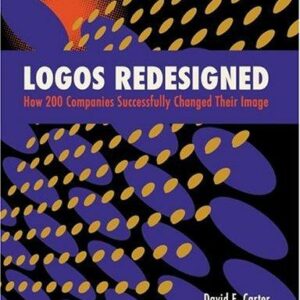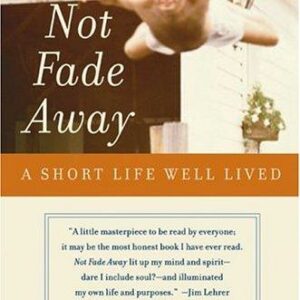The White Woman on the Green Bicycle
$17.00
| Title | Range | Discount |
|---|---|---|
| Trade Discount | 5 + | 25% |
- Description
- Additional information
Description
A beautifully written, unforgettable novel of a troubled marriage, set against the lush landscape and political turmoil of Trinidad—by the award-winning author of The Mermaid of Black Conch
Monique Roffey’s Orange Prize-shortlisted novel is a gripping portrait of postcolonialism that stands among great works by Caribbean writers like Jamaica Kincaid and Andrea Levy.
When George and Sabine Harwood arrive in Trinidad from England, George is immediately seduced by the beguiling island, while Sabine feels isolated, heat-fatigued, and ill-at-ease. As they adapt to new circumstances, their marriage endures for better or worse, despite growing political unrest and racial tensions that affect their daily lives. But when George finds a cache of letters that Sabine has hidden from him, the discovery sets off a devastating series of consequences as other secrets begin to emerge.”Engaging. . . . A firebomb of a book, revealing a slowly disintegrating marriage, a country betrayed and a searing racism that erupts in terrible violence. . . . This is a stunning book, and its depiction of an aspect of Caribbean life is well worth contemplating.”
—The Cleveland Plain Dealer
“Roffey’s explorations of longtime marriages, race, and the lingering effects of colonialism are insightful and often painful to read. . . . The true main character in this novel is Trinidad itself: its people, its customs, and its contradictions.”
—Nancy Pearl, NPR
“Few novels capture the postcolonial culture with such searing honesty as this Caribbean story told through the alternating viewpoints of a white British couple over the last 50 years. . . . The pitch-perfect voices capture the colonials’ racism and sense of entitlement.”
—Booklist
“A rich and highly engaging novel.”
—The Guardian
“Roffey’s evocation of Trinidad is extraordinarily vivid, the central relationship beautifully observed… deservedly short-listed for the Orange Prize.”
—Kate Saunders, The Times (London)
“Heart-rending and thought-provoking, you will never again see the Caribbean as just another holiday destination.”
—Elle
“Equal love and attention go into the marriage and the country at the heart of this Orange Prize short-listed novel. . . . It’s a book packed with meaty themes, from racism to corruption to passion and loyalty.”
—Seven, The Sunday Telegraph
“Roffey’s Orange Prize nominated book is a brilliant, brutal study of a marriage overcast by too much mutual compromise.”
—The Independent
“A searing account of the bitter disappointment suffered by Trinidadians on securing their independence from British colonial rule and of the mixed feelings felt by a white couple who decide to stay on. An earthy, full-blooded piece of writing, steaming with West Indian heat.”
—The London Evening Standard
“Her plot engages the reader through a gradual revelation of the past – slowly forming a melancholy whole.”
—Financial Times
“The White Woman on the Green Bicycle is a love story wrapped in Trinidad’s political drama. Secrets from a decades-long relationship are revealed as the husband reads his wife’s undelivered letters to Eric Williams, the charismatic leader of the island nation in its infancy.”
—Pride MagazineMonique Roffey was born in Port of Spain, Trinidad, and educated in the UK. Since then she has worked as a center director for the Arvon foundation and has held the post of Royal Literary Fund Fellow at Sussex, Chichester, and Greenwich universities. She is the author of the highly acclaimed novels sun dog and Archipelago, which is a finalist for the 2013 OCM Bocas Prize for Caribbean Literature. She has also written a memoir, With the Kisses of His Mouth. Read more about her writing at www.moniqueroffey.co.uk.
INTRODUCTION
“It had been immediate, a strong physical attraction. He had fallen, and that was that. Head over heels, with the sounds and smells, with the smiles and shapes, with all the bewitching qualities of another woman called Trinidad” (p. 73).
George and Sabine Harwood were deeply in love when they set off for a two-year sojourn in Trinidad. It was 1956, and the newlyweds disembarked just as the native population had begun to shake off its colonial rulers. Fifty years later, the Harwoods are still in Trinidad when a violent incident reawakens their marriage’s long-buried resentments and spurs George to an act of atonement as much toward Sabine as toward the island itself.
Talbot is the son of the Harwoods’ maid. After a policeman steals his mobile phone, the young black man impulsively tries to get it back. In retaliation, the lawman and three of his cohorts take Talbot “where no one could hear him call for help” (p.1). They beat him until they were bored and worn out from the exertion. Then they left him to die.
For Sabine, the policemen’s behavior crystallized everything that has gone wrong in Trinidad over the past fifty years: the unpaved roads, the rampant corruption, and the lack of opportunity and justice for the majority of the black population.
When she first arrived, Sabine blithely rode through the streets of Port of Spain on her green Raleigh bicycle. “A halter-neck top, Dior sunglasses. Blonde curls. Every man behind her stopped dead in their tracks to watch her pass” (p. 27). Yet she quickly sensed the hostility that her white presence also provoked. She longed to go home and leave the country to its people. But George always found a reason to stay just a little longer.
Sabine began to follow the meteoric rise of Eric Williams, the soon to be first black prime minister of Trinidad and Tobago. The whites and French Creoles at the Harwood’s country club dismissed him as a “bush nigger in a suit” (p. 269), but Sabine hoped that he would bring positive change. Instead, only Williams and a coterie of high-powered black men grew wealthy. The circumstances of the average black citizen remained the same. Over time, her hopes for both home and change melted away in a haze of rum and heat.
Unlike his wife, George flourished in the Caribbean and paid little heed to the islanders’ struggle for independence. He rose from his humble position with a British shipping company to become a wealthy landowner. Much later, he achieved minor celebrity as a journalist for The Trinidad Guardian, writing “all the upbeat stories, the good-news stories the younger men on the paper refused to touch” (p. 15).
In the wake of Talbot’s beating, George stumbles upon Sabine’s private papers and discovers hundreds of unsent letters addressed to Williams. Overcome with confusion, jealousy, and grief for his eroded marriage, he tries to help Talbot in a desperate attempt to right some of his life’s wrongs.
Stunningly infused with both the languorous and menacing rhythms of the island, Monique Roffey’s The White Woman on the Green Bicycle is an indelible portrait of post-independence Trinidad, and of a marriage doomed by the long shadows of colonialism
ABOUT MONIQUE ROFFEY
Monique Roffey was born in Port of Spain, Trinidad, and educated in the United Kingdom. The White Woman on the Green Bicycle, an Orange Prize finalist, is her second novel. She is also the author of the novel Sun Dog. Roffey currently lives in Harlesden, north London, where she spends most of the day in her pajamas, writing.
A CONVERSATION WITH MONIQUE ROFFEY
Q. In an interview in The Guardian (London), you talked about your parents and their arrival in Trinidad—including the fact that your mother brought her green bicycle. How much of George and Sabine is based upon them? Was your mother as notorious for her bicycle riding as Sabine?
Yes, everyone knew my mother because she rode around Port of Spain on her green bicycle in her shorts, looking very glamorous and yet very foreign too. For months after she first arrived, she would go to parties or meet people for the first time and they would say “Oh, you’re the women on the green bicycle,” so she was well-known for her bike.
My parents had a long and eventful marriage and were always a bit like movie stars to me, when they were young. Yes, to some extent George and Sabine are based on them, but in many ways not at all. My mother had no interest in Eric Williams, for example, or the PNM, and she never attended the University of Woodford Square; all of that has to do with my own interest in Trinidad’s recent history.
Q. What did your parents think about Eric Williams?
To my knowledge and memory, they did not have strong opinions about him.
Q. You capture the cadences of the spoken language brilliantly. Was this difficult, or—as a native Trinidadian—did this come easily to you? Did you coin the incredibly evocative “steupse,” or is it commonly used in Trinidad?
Trinidad’s language is a fusion of English, African, and French and so we have our own words and even our own dictionary.Steupse is a common local word and it’s the onomatopoeic word for the sound people make to show disapproval, or to show they are vexed, when they suck their teeth together. It means “Oh for God’s sake.”
I am bilingual and can speak this other type of English when I want to. It’s in my ear and it is the language I grew up with all around me. Trinidadians love speaking their own English; it’s full of poetic forms and can be playful and lyrical and comical. Trinidadians are verbal acrobats and I love being on the island just to hear the people speak. One of my favorite poets is Anthony Joseph, a Trinidadian also based in the UK. He is one of the best examples of writers of my generation using this fusion-language. Check him out.
Q. At what point did you begin to become aware of the social inequities in Trinidad? How conscious were you of Eric Williams when he was in power?
Eric Williams died when I was fifteen and I remember his funeral vividly. But after that, all I ever heard about him was what the adults in the white community made of him, that he was corrupt and a failure. The Caribbean was built on crime; it has a criminal past. It was born from slavery, piracy, you name it… big heinous crimes of humanity were committed on almost every island. There is evidence of slavery everywhere even today, even just in place names. You cannot live here and not know about all this from a very young age and without understanding that today’s problems with crime and corruption are directly linked. Piracy still exists in the Caribbean and oil is the new mono-crop in Trinidad for sure. In Wide Sargasso Sea there is a passage where the newlyweds visit a beach called “Massacre.” The Mr. Rochester character asks his new white wife Antoinette who was massacred here and she replies that she doesn’t know and it doesn’t matter either, so many have been killed. This is true wherever there has been slavery, so many killed it is hard to know who was killed and where and when.
Q. Like George and Sabine’s son, Sebastian, you were sent to boarding school in England at a relatively young age. Were you—like Sebastian—sent away so that you didn’t grow up “too” Trinidadian?
Yes. And it worked. But in a most unusual way. I am an outsider in both the UK and in Trinidad. This suits me. Writers need to stay on the outside of society, as observers. I very much relate to the mad woman in the attic, the white Creole woman with frizzy hair; that’s me, this upstart. Chain her up, hide her away. She might be crazy. Much to say here!
Q. Why did you choose to make your fictional proxy male? Do you have a sibling like Pascale who stayed in Trinidad during his or her school years? If so, how close are you now?
I was born in April and my parents almost called me Pascale. If I’d never left Trinidad I may have grown up into a woman just like her; a hard drinker, a limer, and married to a rich man I do not love! Sebastian, the son is a bit like me, the prodigal child who comes from the metropolis and has a good job and seems very educated. But he says “Don’t worry, the grass is not greener.” I feel very strongly that I may choose to reside in a developed capital city, but I do not see Trinidad as a less interesting place—quite the opposite. And while some Trinidadians look to Europe or the States as somewhere more credible, the vast majority of Trinidadians are fiercely passionate about their country. You just have to be here for Carnival to see that.
I have a brother who lives in Trinidad. Like me, he went to a British boarding school and then university in Canada. But he chose to live, work, and marry in Trinidad and is much more local than me… he is nothing like the characters in this book.
Q. You split your time between London and Trinidad. Do you consider yourself a Caribbean writer or an English one? Where do you feel most at home?
I am Trinidadian by birth and half English by blood and possess two passports. Roffey is a very English name. My father was an Englishman. But I am a white Creole, to be exact about it; I have been mixed up into the culture of Trinidad. While I am most at home in London, I cannot really label myself as either British or Trinidadian. I write in the English language and live in the UK. I find it hard to say that I am an entirely British writer, especially when I supported Trinidad in the 2006 World Cup and also support the West Indies cricket team.
Q. What is the current political situation in Trinidad? How has your novel been received there?
The novel has been received extremely well here. Patrick Manning and the PNM were voted out of office in early 2010; we have a new female prime minister, Kamla Persad-Bissessar and a new party and I think she’s an awful lot better than any prime minister I’ve seen so far. We have a Canadian chief of police who has been here a year, too. All this is promising.
Q. In the novel, Sebastian and Sabine discuss the “murder a day” (p. 88) in Trinidad. Does this estimate still hold true?
The murder rate is still high, yes.
Q. The blimp that you describe hovering over Port of Spain seems so preposterous that it’s shocking to discover that it’s real and not your fictional creation. Is it still there? Can you talk a bit about how it came to be and the people’s response to its presence?
Since the new government, it has been taken down and we no longer see it. But exactly what the blimp was really doing remains a mystery to me.
Q. What are you working on now?
My erotic memoir With the Kisses of His Mouth is out in June in the UK. I have been working on a novel the last few months, called Archipelago. I have been traveling a lot through the Dutch islands and to South America and living in Trinidad the last few months. It begins and ends in Trinidad; it is an adventure story, and has something to do with Moby-Dick; that’s all I can say for now.
DISCUSSION QUESTIONS
US
Additional information
| Weight | 12.2 oz |
|---|---|
| Dimensions | 0.9900 × 5.0400 × 7.7000 in |
| Imprint | |
| Format | |
| ISBN-13 | |
| Author | |
| Audience | |
| BISAC | |
| Subjects | election, Literature, book club books, novels, race, journalism, economics, collection, juneteenth, civil rights, indian, poverty, victorian, wealth, literary fiction, magical realism, corruption, american literature, FIC037000, political books, satire, fiction books, books fiction, realistic fiction books, racism books, fantasy, england, politics, feminist, feminism, racism, adventure, historical, war, crime, culture, work, family, political, classic, society, romance, love, drama, FIC045000, fiction, mystery, Friendship, coming of age, 21st century |


